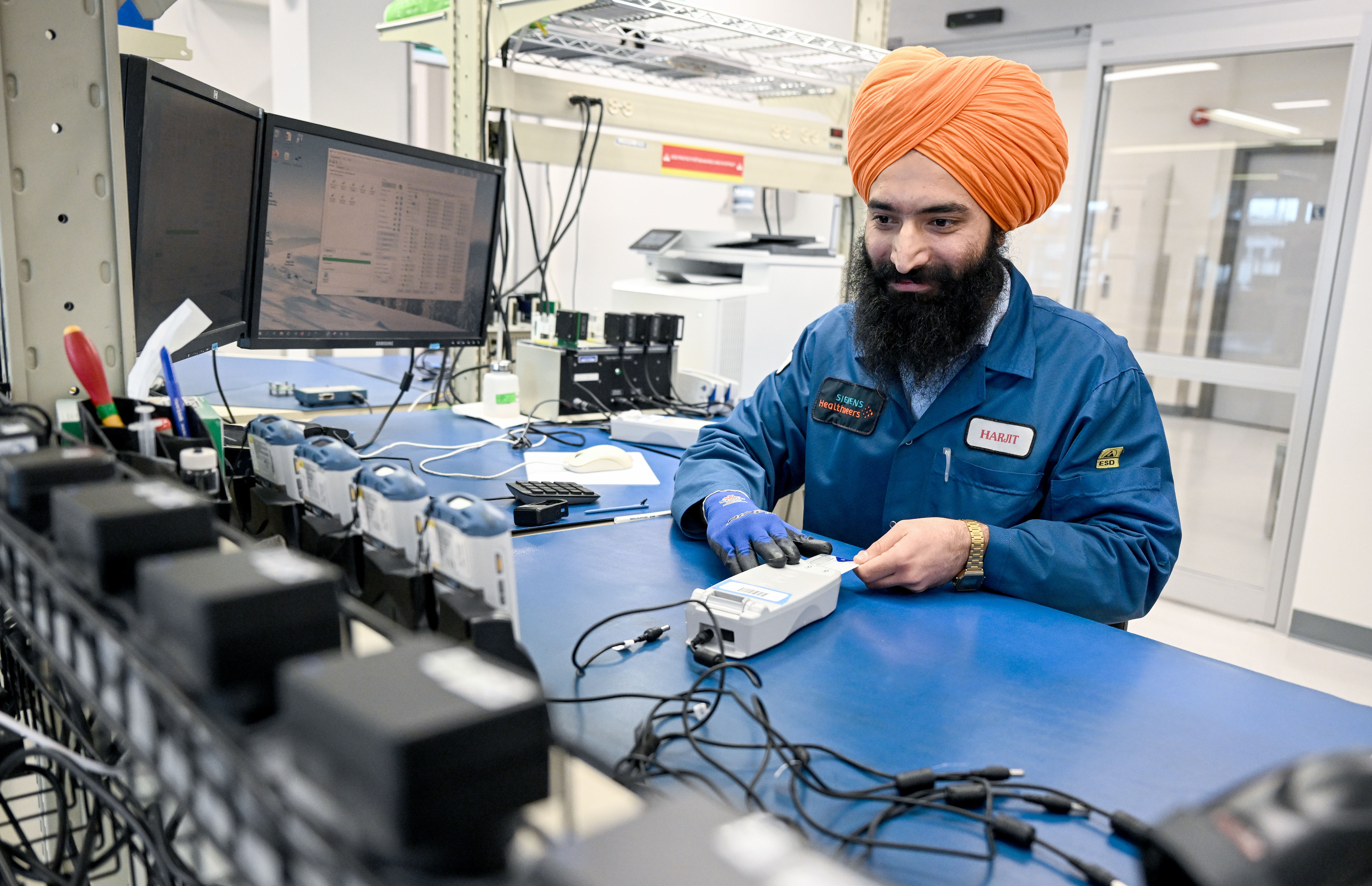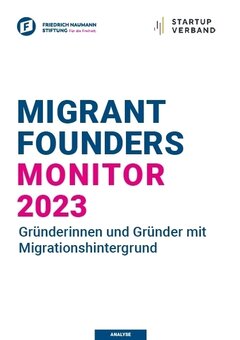German Skilled Immigration Act
Immigration Policy: Germany's Struggle to Attract Skilled Workers

Hajrit Singh an seinem Arbeitsplatz bei der Firma Siemens Healthineers. Ohne Arbeitskräfte aus dem Ausland wird es künftig nicht gehen, lautet die Botschaft der Ampel-Koalition.
© picture alliance/dpa | Britta PedersenGermany responded to the demand for skilled labor by implementing the Skilled Immigration Act, yet its effectiveness in attracting the desired talent remains limited.
The Skilled Immigration Act, passed last year, is an important step in the right direction. However, formal migration legislation is just one component of successful immigration policy. Soft and less tangible factors make Germany look unfavorable in international comparison—a pressing threat to our prosperity. Already, 1.8 million positions remain unfilled, and this trend will dramatically worsen in the coming years due to demographic shifts. To compete internationally for the brightest minds, hardest-working skilled workers, and often overlooked, most innovative entrepreneurs, we need political reforms and a fundamentally different approach:
- German bureaucracy in general, and foreigners' offices in particular, often aren't assets when attracting international skilled workers. Efforts such as digitization and a profound shift in mentality are necessary. Positive initiatives exist; for example, Hamburg has created a one-stop shop for foreign newcomers, called "Quiddjes" by the locals, with the "Hamburg Welcome Center" and "Newcomers Service".
- Tax Burden: Taxation is excessively high compared to international standards, especially for skilled workers with above-average salaries. Alongside general relief, temporary benefits for newcomers are being discussed- an important push in the so-called international "War for Talents.".
- Infrastructure: Germany still benefits internationally from its reputation as a high-tech hub, but from Deutsche Bahn to fast internet, the reality is often disastrous. One might argue that infrastructure in the US is also lacking, but there, no war on cars is being declared in the cities.
- Our language. We must become more attractive to highly mobile expats who come to Germany for just a few years. They will hardly want to learn one of the world's more complicated languages—English must become the second official language aswell as the second standard, also in childcare, schools, and the private sphere.
- Housing Market: The exhausting search for housing is a significant problem for newcomers. Solutions? More incentives for investors in housing construction instead of destructive price caps and overly strict building regulations that make construction expensive and unattractive.
- Better conditions for founders: Setting up businesses still takes too long, and the availability of venture capital is a problem in risk-averse Germany. The foundation addresses the particular hurdles faced by migrant founders in its "Migrants Founders Monitor," published jointly with the German Startup Association.
- The recognition of foreign educational qualifications still has room for improvement. While the pride of universities and German craftsmanship is understandable, it does not contribute to greater openness towards the skills of foreign professionals.
- As the American economist Richard Florida attested in his bestseller "The Rise of the Creative Class" at the turn of the millennium, the future belongs to cities where alternative lifestyles are accepted, and a liberal way of life is embraced. Cities like Berlin, with its international cultural and startup scene, demonstrate that this is achievable in Germany as well. Against this backdrop, the rise of right-wing populism is one of the most acute threats to Germany as a business nation.
Germany, therefore, has the power to become a more attractive country for skilled labour. While there are significant forces of inertia in many areas, with more economic and societal freedom, a turnaround is possible. In 2006, the world was a guest among friends. We can do it again!


